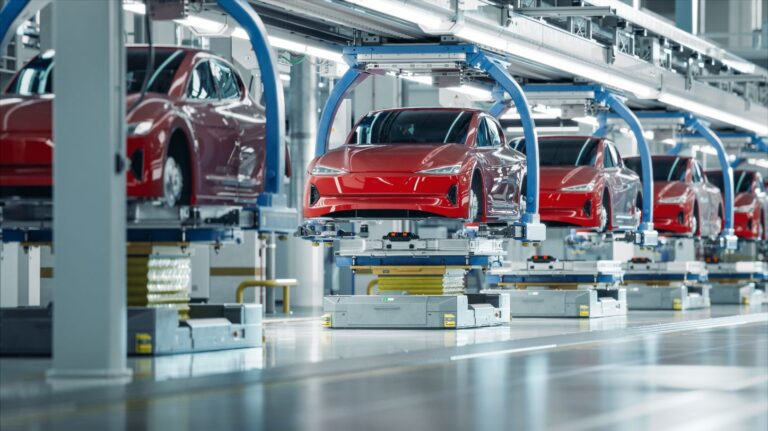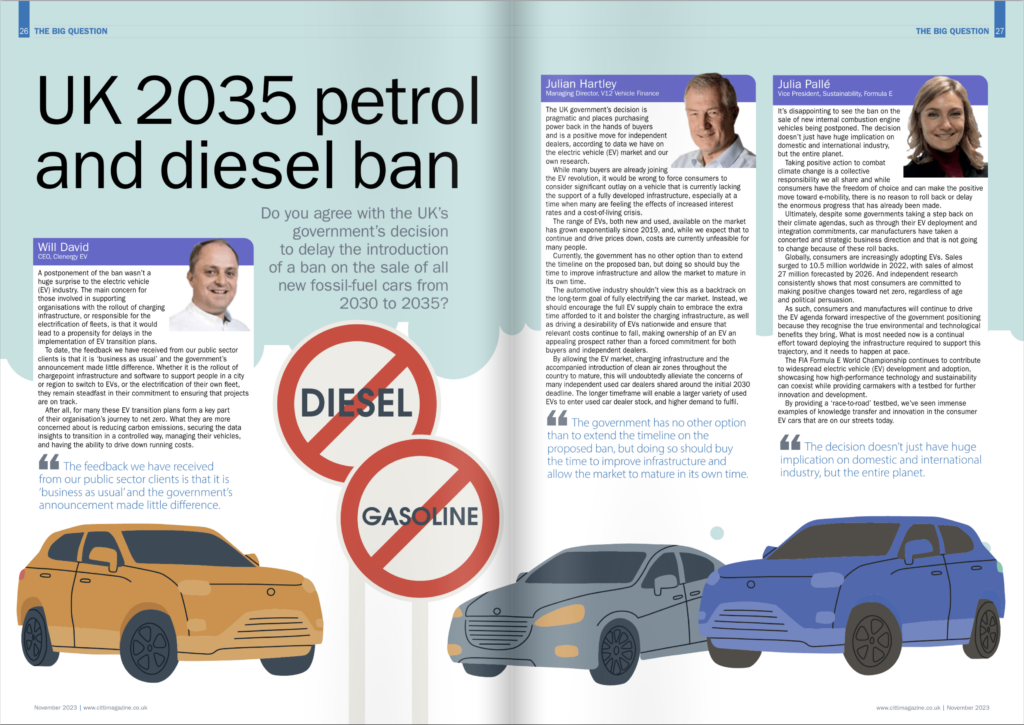The UK’s zero-emission vehicle (ZEV) mandate, the government’s pathway toward all new cars and vans being zero-emission by 2035, is now law.
As previously reported by CiTTi Magazine, the ZEV mandate sets out the percentage of new zero-emission cars and vans automotive manufacturers will be required to produce each year up to 2030.
Under the new law, 80% of new cars and 70% of new vans sold in Great Britain will now be zero-emission by 2030, increasing to 100% by 2035.
This follows a controversial decision taken by UK prime minister Rishi Sunak in September 2023 to delay the ban on new diesel and petrol cars from 2030 to 2035, putting the countries in line with other major global economies such as France, Germany, Sweden and Canada.
Additionally, last month the UK and European Union agreed to extend trade rules on electric vehicles (EVs), potentially saving manufacturers and consumers up to £4.3bn in additional costs.
According to UK technology and decarbonisation minister Anthony Browne, the new law provides investment certainty for the EV charging sector to expand the country’s charging network, which has reportedly grown by 44% since this time last year.
“This will support the constantly growing number of EVs in the UK, which currently account for more than 16% of the new UK car market,” said Browne.
Latest government statistics show that there has been a 41% increase in zero-emission vehicles registered for the first time.
The new regulations are backed by more than £2bn already invested by the government to EV expand charging infrastructure and incentivise zero-emission vehicles.
Schemes to lower the upfront and running costs of owning an EV include the plug-in van grant of up to £2,500 for small vans and £5,000 for large vans until at least 2025 and £350 off the cost of homeplace chargepoints for people living in flats.
Other initiatives designed to support the rollout of EV infrastructure include the £381m Local EV Infrastructure Fund, for which the first round of applications are currently being assessed, and a £70m pilot to support the deployment of ultra-rapid charging points at motorway service areas.




